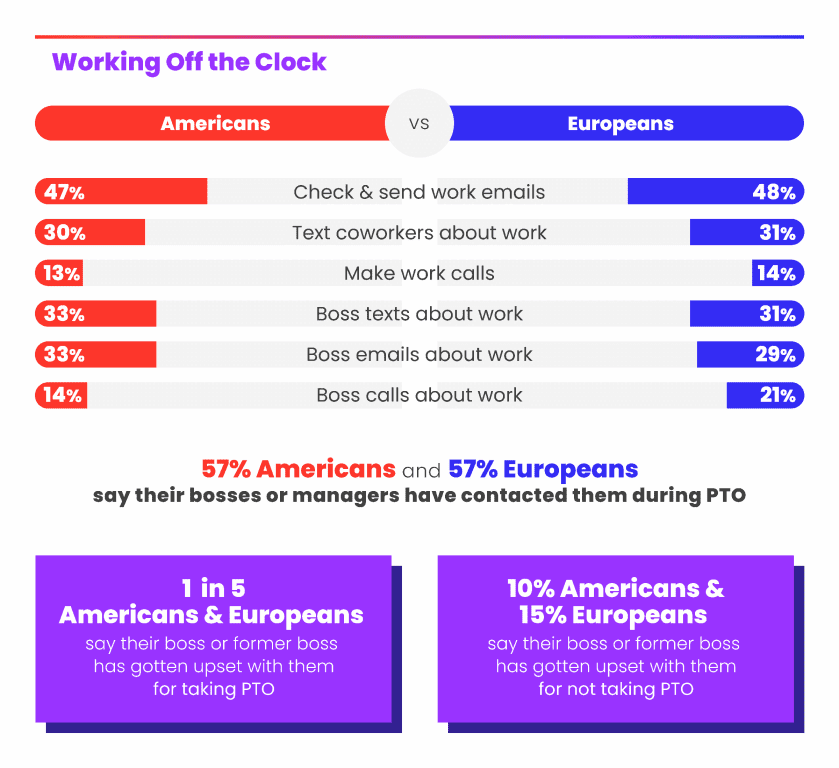US workers feel more guilty than Europeans about PTO
New View Strategies found that 41% of Americans feel guilty about taking time off.
Why You Should Care
The attitudes towards time off vary between the US and Europe.
Uncover the differences between the regions, and the problem these workers have in common.
Although many employees eagerly look forward to taking holiday and recharging, it’s not always a stress-free experience. Even after passport checks, forgotten items, and delayed flights, it can be hard to switch off and stop thinking about work.
Business management consultant New View Strategies investigated how employees felt on holiday and noticed stark differences between Europeans and Americans.
To do this the consultancy spoke to 553 Americans and 557 Europeans with full-time jobs.
Differences between the US and EU
The average paid time off (PTO) allowance for US and EU workers varies. US workers are able to take 15 days and those in the EU are allowed to have 21 days off minimum as a legal requirement.
While the average EU worker took all of their holiday allowances, US workers only took off 13 days. This means that 45% of US workers don’t take their annual leave in full.
Interestingly, despite having bigger PTO allowances than their US colleagues, 51% of European workers would like more time off. This figure is close to the 50% of Americans who also want more leave days.
However, when taking time off, Americans feel more guilt. 41% of Americans feel bad for taking seven or more days off, while only 28% of Europeans feel the same.
In the report, New View Strategies writes: “Despite having less vacation time than Europeans, Americans are feeling a lot more guilt when they take PTO. One out of three Americans feel guilty for taking time off compared to one out of four Europeans.
Although there are different societal and social approaches to work, the research makes it clear that switching off from work is an issue for everyone.
Working while on holiday
Although many organizations have considered unlimited leave policies, a common issue employees face is actually being able to take days off effectively without work contacting them.
47% of Americans and 48% of Europeans check and send work emails while on holiday. In addition, 30% of US and 31% of European employees still text about work.
Bosses appear to be driving this issue of working while on leave. 57% of both US and EU leaders message employees while they are on their scheduled leave.

New View Strategies
Boundaries need to be set and the only people who can do this are leaders. Managers need to recognize when employees are off and understand that they should be able to unwind without interruption.
Otherwise, staff may begin to look at roles in other organizations that give them greater work-life balance.
On top of that, employees undoubtedly need to be empowered to set these boundaries and be comfortable in handing work to colleagues while they are away.
After all, a vacation should help relieve feelings of burnout, not stoke the flame.
Sign up to the UNLEASH Newsletter
Get the Editor’s picks of the week delivered straight to your inbox!

Senior Journalist, UNLEASH
Dan combines his first-hand experience alongside the latest news and opinions in the HR Technology space.
Contact Us
"*" indicates required fields
Partner with UNLEASH
"*" indicates required fields